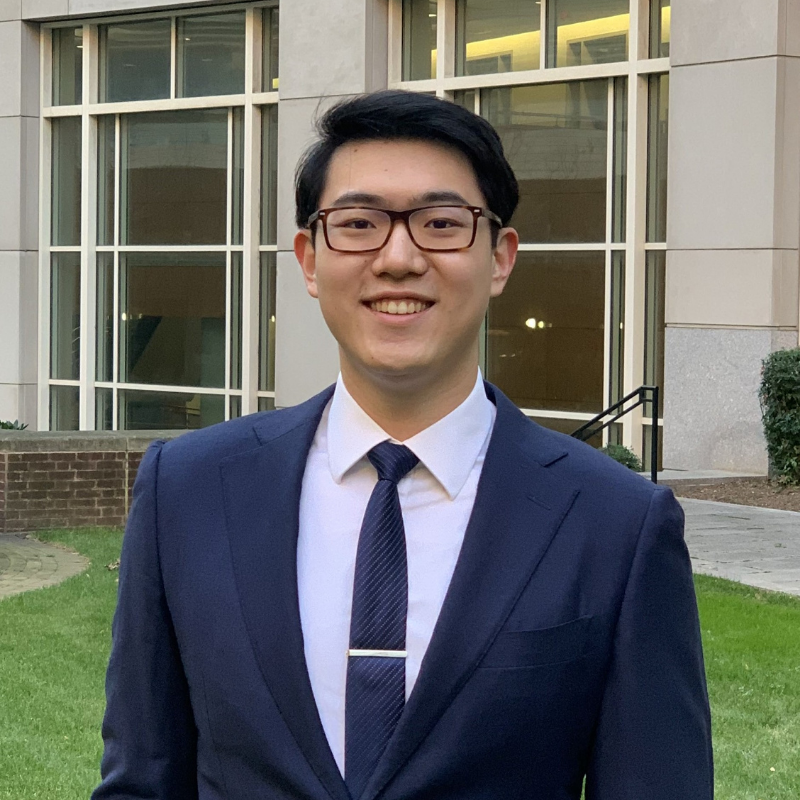
The medical field will continue to evolve, and I believe it is imperative for us as its future leaders to pioneer this growth.
Alex Pu earned dual degrees in bioengineering and computer science in 2018, and is now a second-year medical student at University of Maryland Medical Center (UMSOM) in Baltimore.
Growing up, Alex was fascinated by mathematics and the sciences – particularly biology and the humanistic nature of medicine. “Sometime during high school, I read a National Geographic story about developments in human prostheses,” recalls Alex. “The ways technology could be applied to biology to improve someone’s quality of life interested me. I decided to pursue bioengineering as it was not only an opportunity to learn more about this field, but also the perfect blend of my academic interests.” Alex’s father earned his Ph.D. in Computer Science from the University of Maryland, and high school coursework piqued Alex’s own interest in pursuing it as a second major.
While on campus, Alex helped spearhead UMD’S Tzu Ching organization, which hosts service events in the DMV area. Alex organized food distribution at homeless shelters across Washington, D.C. and the National Institutes of Health (NIH) Children’s Inn, as well as tutoring services at Prince George’s County elementary school. Tzu Ching also hosts on-campus events promoting sustainable living. “Four years later, I am extremely gratified to see a new generation of leaders step up to head the club,” says Alex.
Alex also participated in the Gemstone Honors Program, studying extracellular vesicle-based therapy on osteoarthritis with BIOE Associate Professor Dr. Steven Jay. He was also selected for the Omicron Delta Kappa national leadership society and served as an Organic Chemistry II LAB TA for six semesters.
After graduation, Alex worked for the U.S. Food and Drug Administration (FDA) as an ORISE Fellow, during which time he collaborated with NIH engineers and researchers to construct a system to autonomously monitor, quantify, and analyze rodent behavior. “The bioengineering program gave me the background to understand the mechanical and electronic problems our prototype stumbled upon, for which I was able to propose potential solutions,” explains Alex. “Having done bioscience research, I understood the nature of animal studies and could incorporate that into tailoring our software and interface to those specific needs.”
Now, Alex is a second-year medical student at University of Maryland School of Medicine (UMSOM) in Baltimore. Established in 1807, UMSOM is the fifth oldest medical school in the United States and the first in the country to institute a residency training program. Alex utilizes his MATLAB knowledge for kinematic modeling and machine learning for observing statistical trends.
His advice for BIOE students: “The rate at which technology is being applied to clinical problems is increasing, and medicine is becoming an increasingly interdisciplinary field. I highly advise BIOE students interested in medicine to broaden their understanding of various fields not directly related to medicine, such as epidemiology and statistical learning methods. The medical field will continue to evolve, and I believe it is imperative for us as its future leaders to pioneer this growth.”
Top